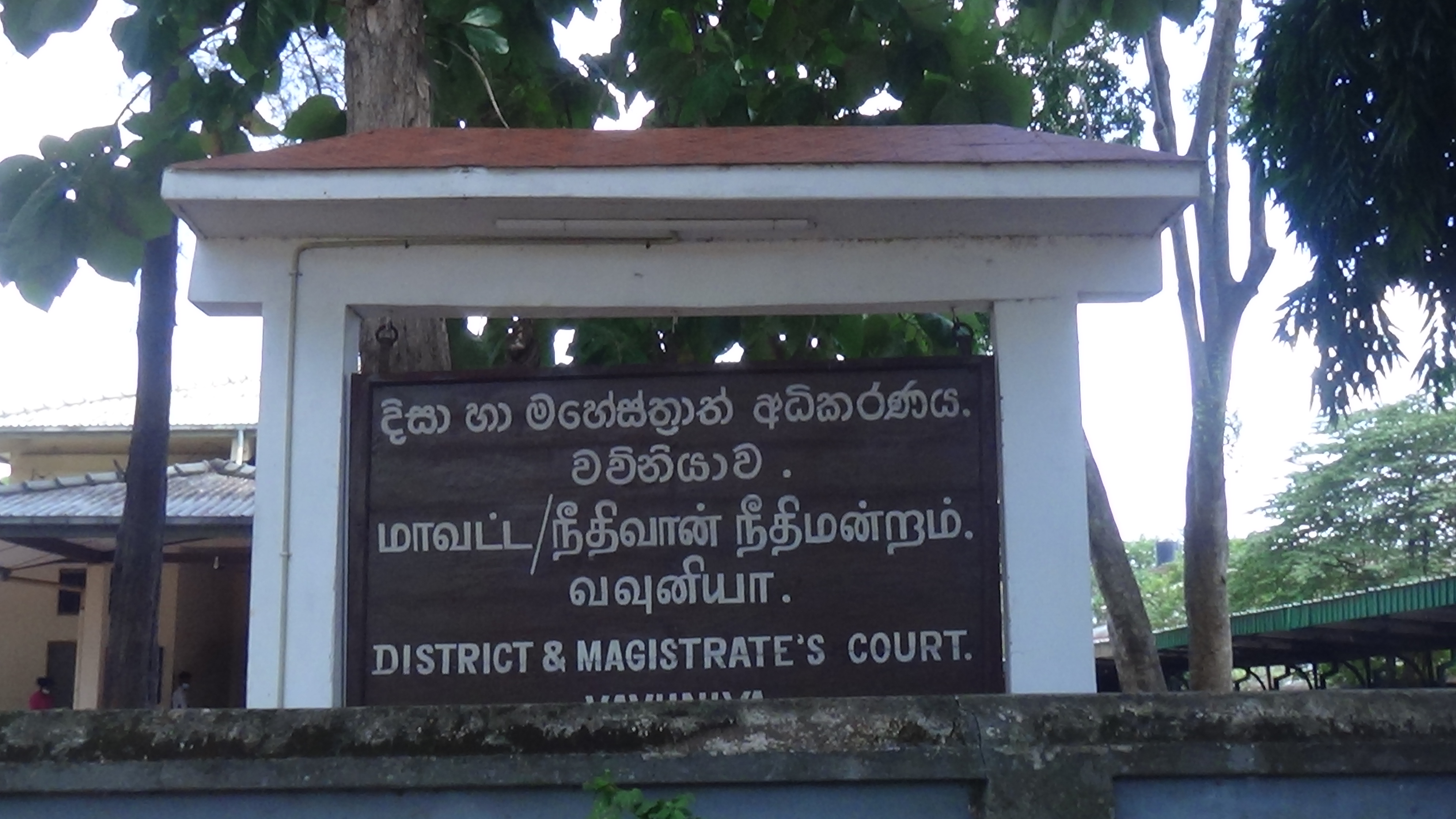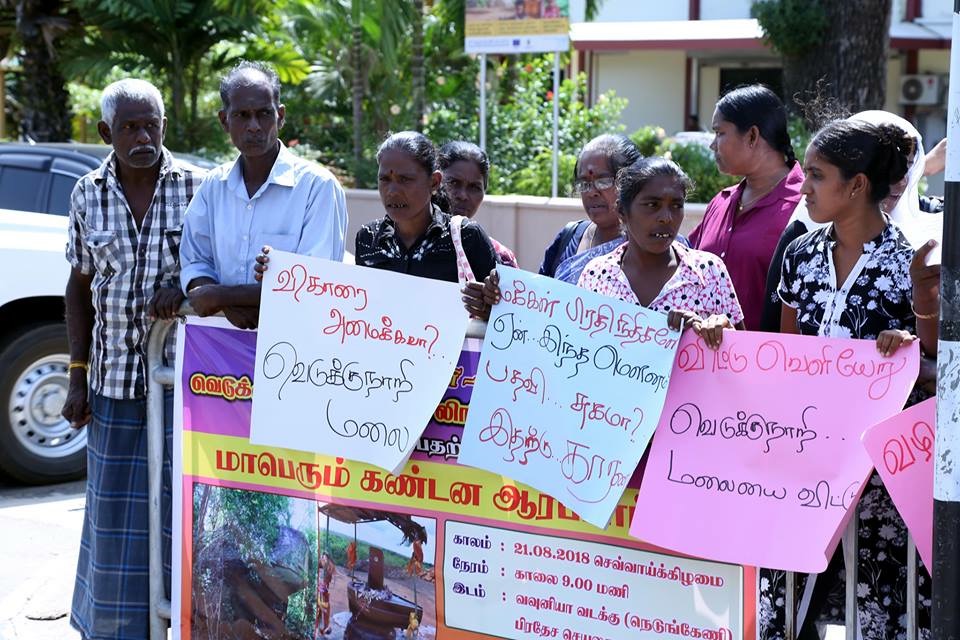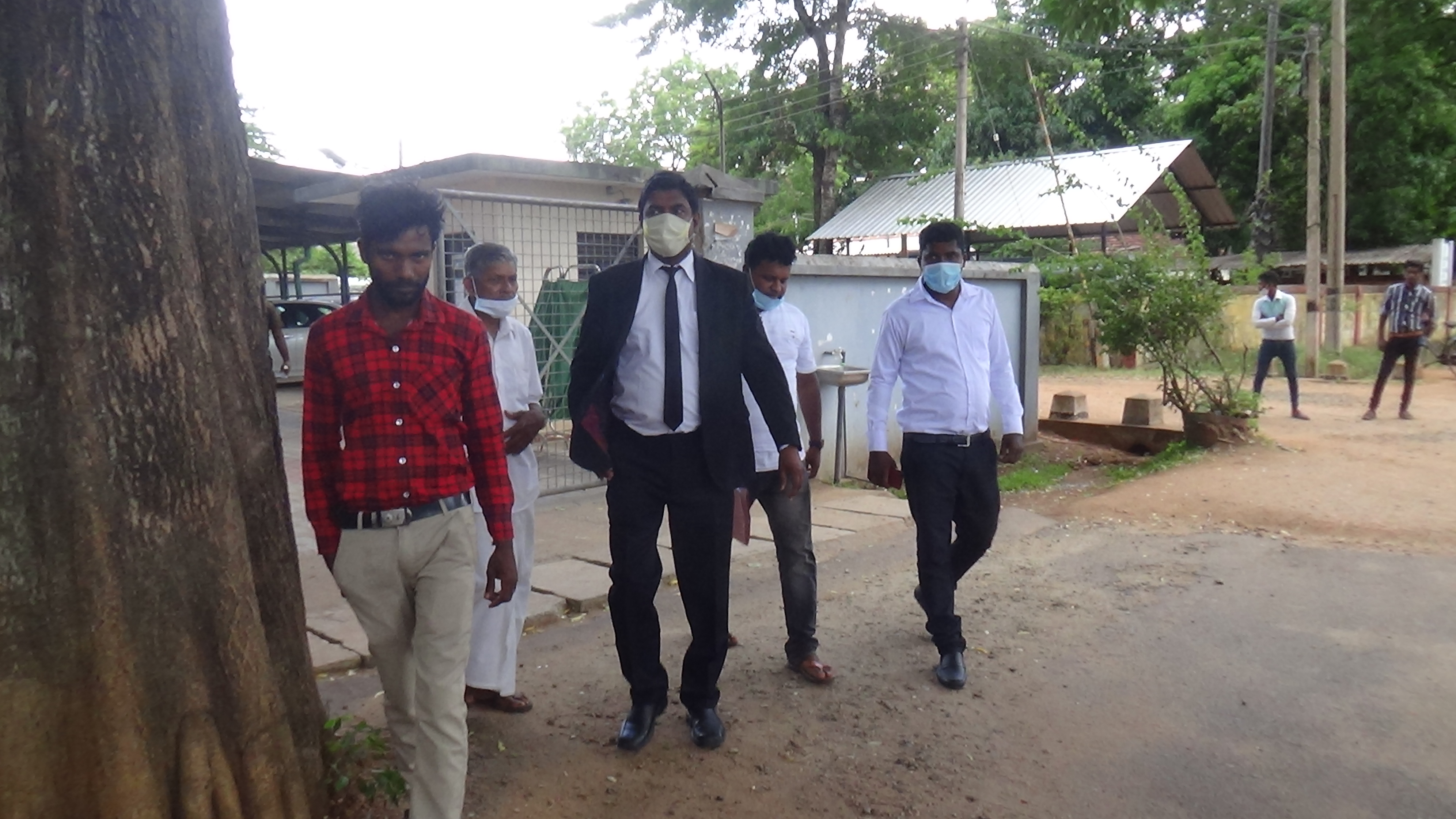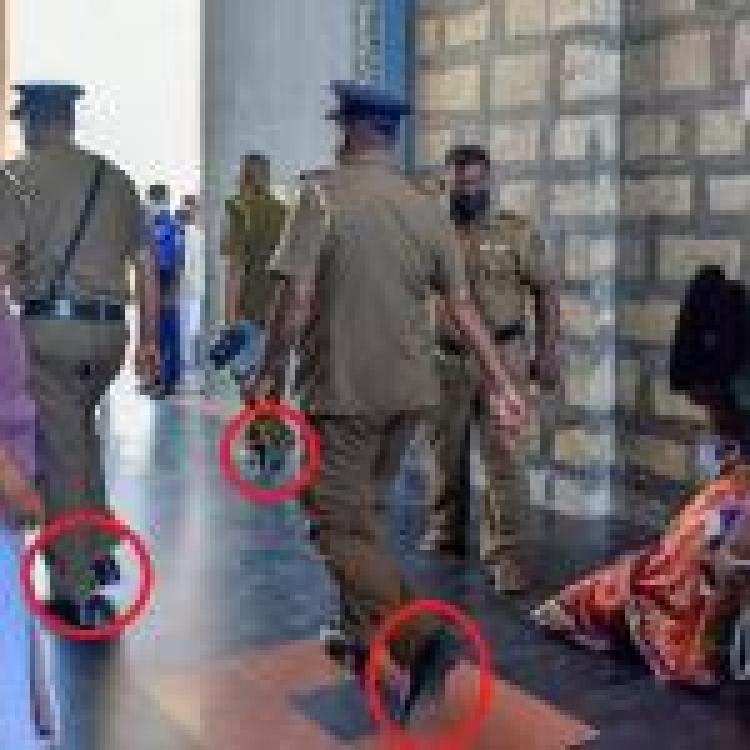
A court in Vavuniya has granted bail to the administrators of the ancient Hindu Vedukkunari hill temple after public worship was banned by Sri Lanka police claiming that the area belonged to the archaeological department.
Police implementing the ban had summoned a priest of the temple for questioning and warned that if he performed prayers, a case would be filed against him. The police had insisted that temple administrators be detained on the basis that it is an archaeological matter.
The granting of bail, on Friday, followed this case in which temple Chairman Sasikumar, Secretary Tamilselvan and Priest Madhimukarasa argued against the banning of public worship. They pointed out that worship was not banned in the south, where various areas, such as Ruwanwelisaya, are under the Archaeological Department.
The court released the temple administration on a Rs. 50,000 bail and the case was adjourned till the 23 October 2020.
More than 15 lawyers, led by senior lawyer Chittrambalam, were present on behalf of the temple administration.
Commenting on the issue, Attorney Sukas told the press;
“Finding a solution to this issue through the courts is tantamount to peeling off the stone […] These issues have to be decided politically".
In 2018, Tamils in Vavuniya protested against the take over of Tamil temples by the Archaeology Department. However, since the re-election of there has a renewed effort in the Sinhalisation of land in the North-East with the President establishing the all-Sinhala Presidential Task Force for the “preserve the historical heritage of Sri Lanka” in the island’s Eastern province.
Read more here: All Sinhala task force for Sri Lanka’s ‘archaeology’ in East








